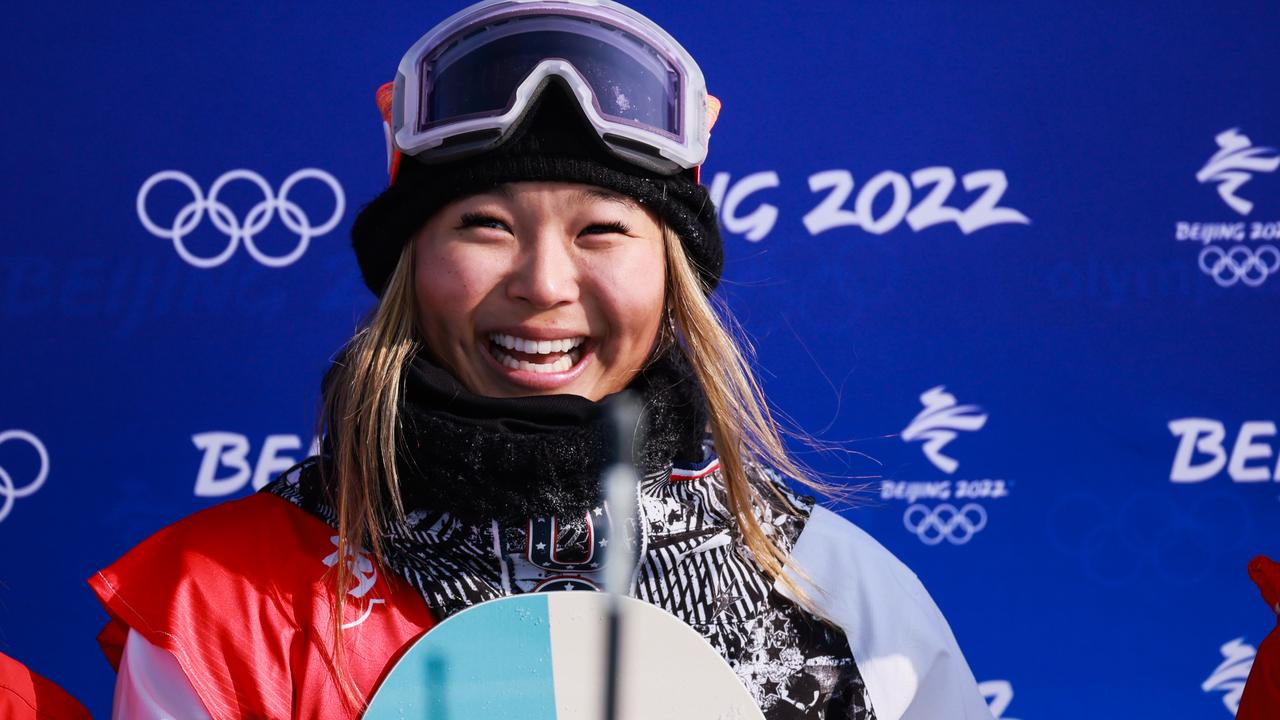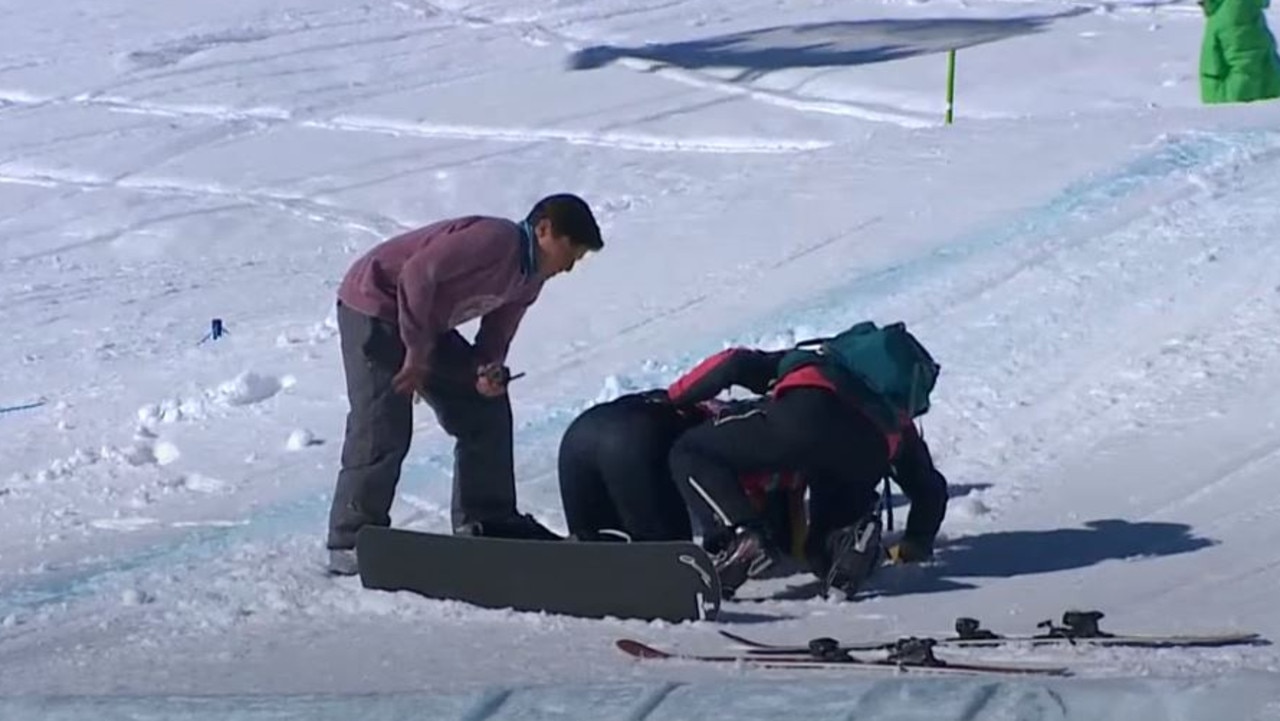Olympic champion Chloe Kim slams ‘sl*t strands’ moniker
American Winter Olympian Chloe Kim has called for the name of a popular hairstyle associated with female snowboarders to be changed.
Two-time Olympic gold medallist Chloe Kim has denounced the “slut strands” moniker that has been associated with the popular hairstyle for female snowboarders, calling for its name to be changed.
Affectionately dubbed “slut strands”, the hairdo commonly seen at this month’s Beijing Winter Olympics involves two distinct strands of hair left loose outside of an athlete’s helmet to frame their face.
Stream Over 50 Sports Live & On-Demand with Kayo. New to Kayo? Try 14-Days Free Now >
Snowboarders have donned the hairstyle for decades. According to American Olympian Maddie Mastro, “slut strands” are about signalling to everyone else on the hill that you want to be recognised as a female athlete.
“The feminine urge to pull hair strands out of your helmet every day so people know you are a girl,” she posted to TikTok in November.
“Sl*t strands 4 life.”
However, Kim is not a fan of the moniker.
“We need to change the name to beauty strands,” she told InStyle.
“I hate the term.
“Beauty strands make me feel beautiful, and it’s such a cute thing.”
Really dig the #Olympics uniform element of having just a lil’ bit of hair escaping your ski helmet. Very into it. #Beijing2022#WinterOlympics2022pic.twitter.com/OQHTt92aMO
— NFL Uniform Czar (@NFLUniformCzar) February 8, 2022
Snowboarder Elsa Watkins, who founded the Slut Strand Society, an apparel company based in Denver, told Slatethat she “didn’t necessarily like” the term growing up but later embraced it and took ownership of the nickname.
Watkins argued the hairstyle is “basically (as) essential as your bindings themselves” and about “showing off your femininity in a simple and cheeky way”.
“When we started calling them slut strands in like sixth grade, it kind of just stuck with us. Now it’s turned into a giant global community of ladies and strands,” she explained.
“I just grew up always knowing that that’s what we called them. I didn’t necessarily like it, per se, but I was like, OK, if this is what we’re gonna call it, we might as well embrace it and make lemons out of lemonade, because obviously the name is not gonna change.
“You will hardly see anyone in the Olympics right now without their strands out.
“It’s a super simple way to make people in the space feel celebrated and included and worthy.
“This is the one thing we can promote that’s approachable to absolutely everyone.
“It makes you feel connected by just two strands of hair.”

Last week, Kim won the women’s half-pipe title in Beijing after scoring 94.00 points in her first run at Genting Snow Park H & S Stadium, giving herself a virtually unassailable lead. Spain’s Queralt Castellet took silver on 90.25 and Japan’s Sena Tomita claimed bronze on 88.25.
Four years ago, Kim became the youngest woman to win an Olympic snowboarding medal when she claimed half-pipe gold as a 17-year-old at the 2018 PyeongChang Games.
She took a two-year break from competition after her Olympic success as she struggled to cope with the pressures of fame.
— with AFP



